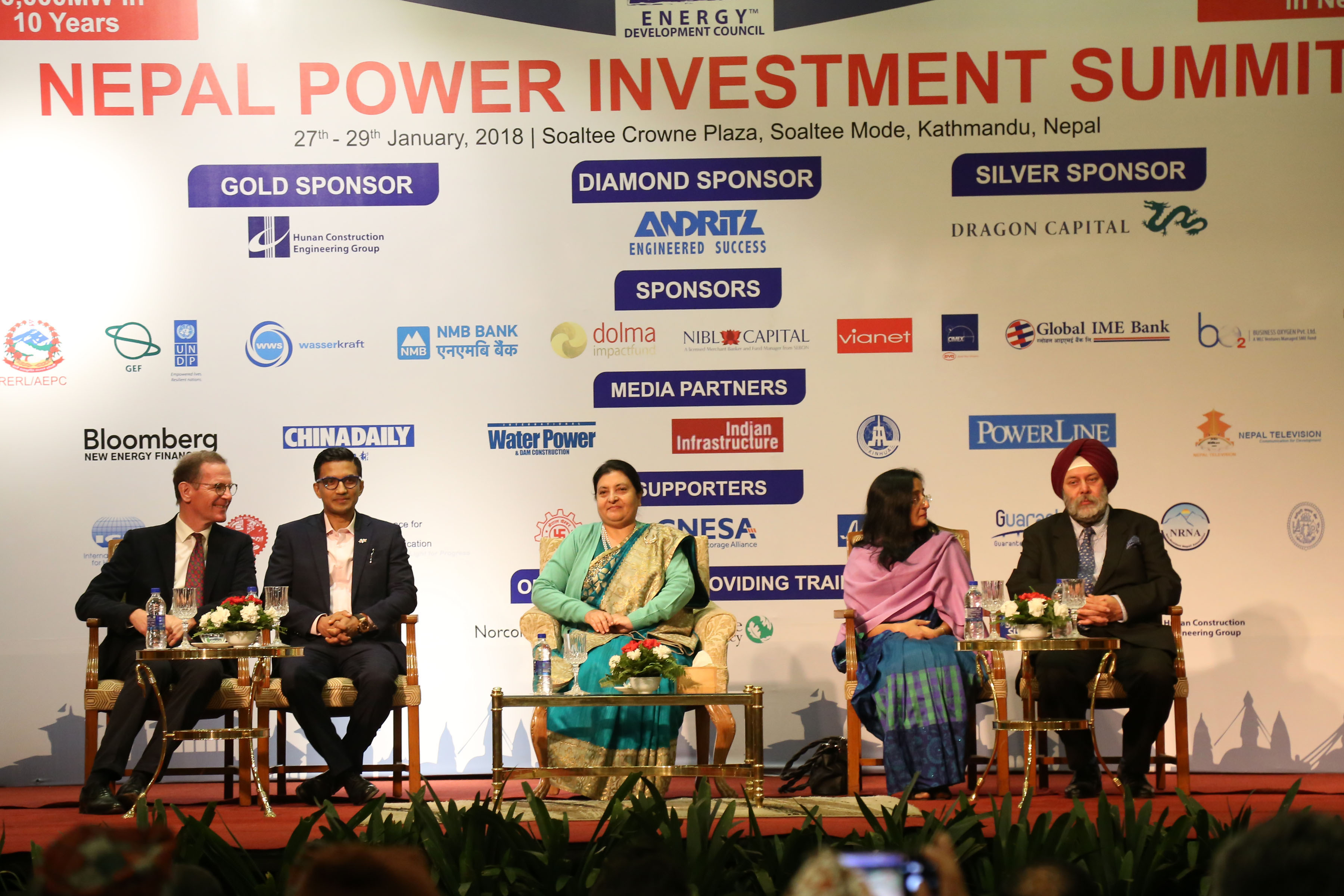SAsia cooperation for electricity trade sought
Kathmandu, January 27
Nepal’s hydroelectricity can be a clean, reliable and affordable source of power for energy-starved South Asia if the nations of the region forge a partnership to harness the abundant hydro resources and develop transmission lines and grid interconnections by framing the necessary legal and regulatory framework.
As some countries in South Asia have an experience of bilateral energy trade with India, that experience could be utilised for trilateral and multilateral energy cooperation, according to stakeholders.
Speaking in the various sessions in the first day of the Nepal Power Investment Summit organised by the Energy Development Council (EDC), Indian Ambassador to Nepal Manjeev Singh Puri, shed light on the energy cooperation between Nepal and India, which has ensured reliable supply of electricity and improved the livelihood of people.
Currently, Nepal is importing around 400 megawatts of power from India. Citing the Indian government’s target to expand the share of manufacturing to 25 per cent in its gross domestic product by 2025, Ambassador Puri further said that India requires a huge amount of power to achieve that target.
As Nepal has been facing power deficit in dry season and has surplus power during wet season, Nepal has proposed for ‘energy banking’ with India, which means, the quantum of power that Nepal supplies to the southern neighbour during the wet season can help the country minimise its electricity import bill from India during the dry season.
Ambassador Puri also mentioned that India is the largest source of foreign direct investment in hydropower as two big projects — Arun III and Upper Karnali — each with capacity to generate 900 megawatts have been initiated through Indian investment. He also advised investors to pay heed to the global fall in cost of generating solar power and that solar energy is becoming more viable than other sources in recent days.
Also speaking in the summit, Ambassador of Bangladesh to Nepal, Mashfee Binte Shams, emphasised on the need to develop legal and regulatory provisions for sub-regional and regional electricity trade. She said that Bangladeshi investors can invest in Nepal’s hydropower sector if there is trilateral consensus between Nepal, India and Bangladesh for electricity trade.
Bangladesh’s current electricity generation stands at around 16,000 megawatts and it will require around 34,000 megawatts of power by 2030 to sustain the higher economic growth of above seven per cent. As the nations have envisioned providing access to sustainable, clean and affordable energy access to their citizens by 2030 under the Sustainable Development Goals, Nepal’s hydroelectricity could be imperative for the rising demand of clean and reliable energy in the region, according to Shams.
In the programme, Secretary of the National Natural Resources and Fiscal Commission, Baikuntha Aryal, spoke about the guidelines issued by the Ministry of Power of India on regional electricity trade, which is quite stringent. He laid emphasis on regional energy cooperation for mutual benefit of the region.
The summit was inaugurated by President Bidhya Devi Bhandari.
The three-day long international power summit kicked off today with an objective to introduce Nepal as a safe investment space, especially in the hydropower sector, and to portray Nepal as an investment destination that not only provides equal playing opportunities to foreign investors but also assures safe returns.
The event where more than 55 international speakers will be presenting their papers has been participated by 350 delegates from 24 countries, including those from SAARC, Europe, China, South Korea and the US, among others.
“While neighbouring India has declared to develop 100,000 MW of solar power in the next four years, the development of 40,000 MW of the same energy by Nepal in the next 10 years is a realistic goal,” said EDC Chairperson Sujit Acharya. “Development of the aforesaid quantum of electricity will raise the per capita income of Nepalis to $5,000.”






